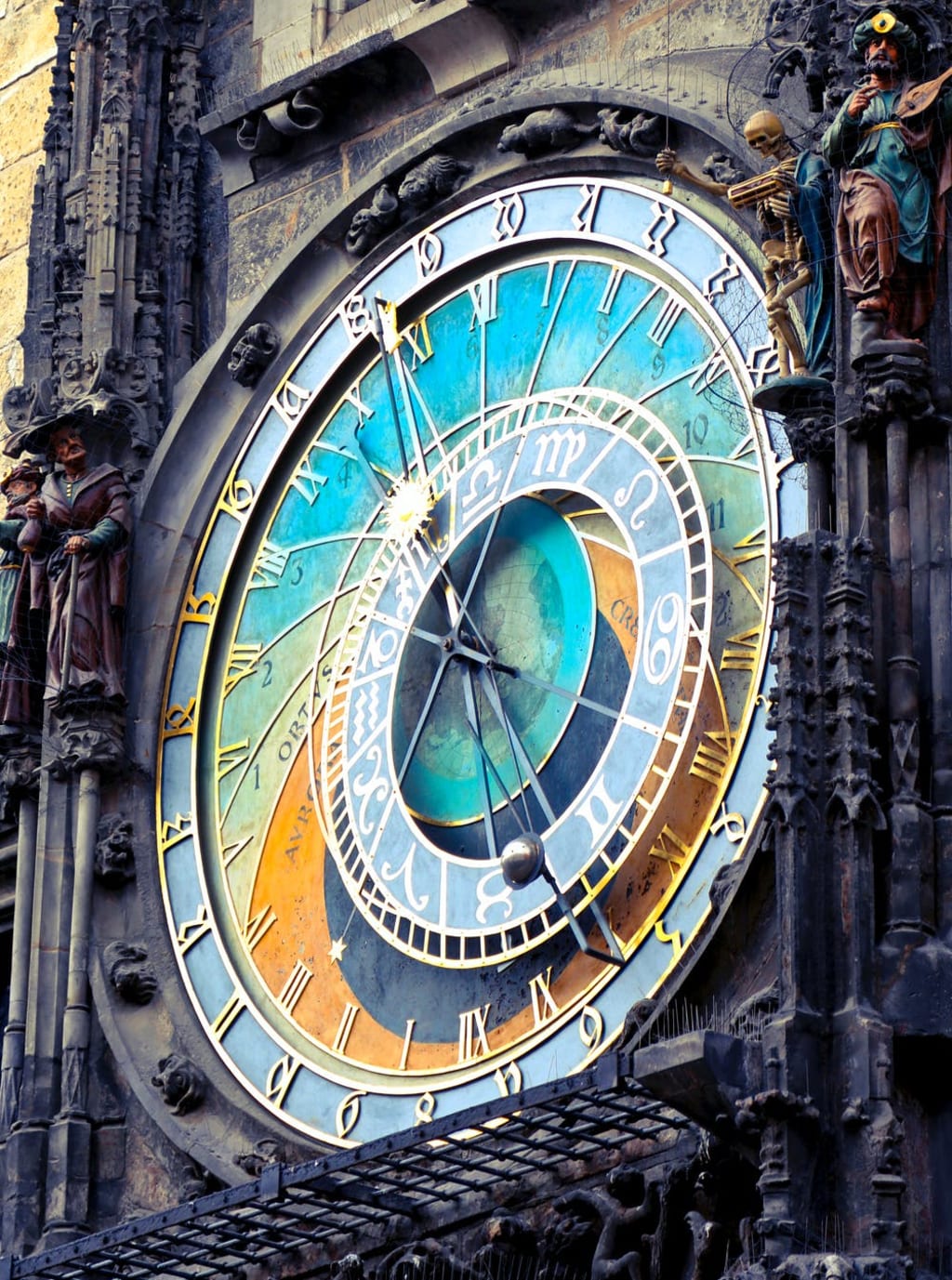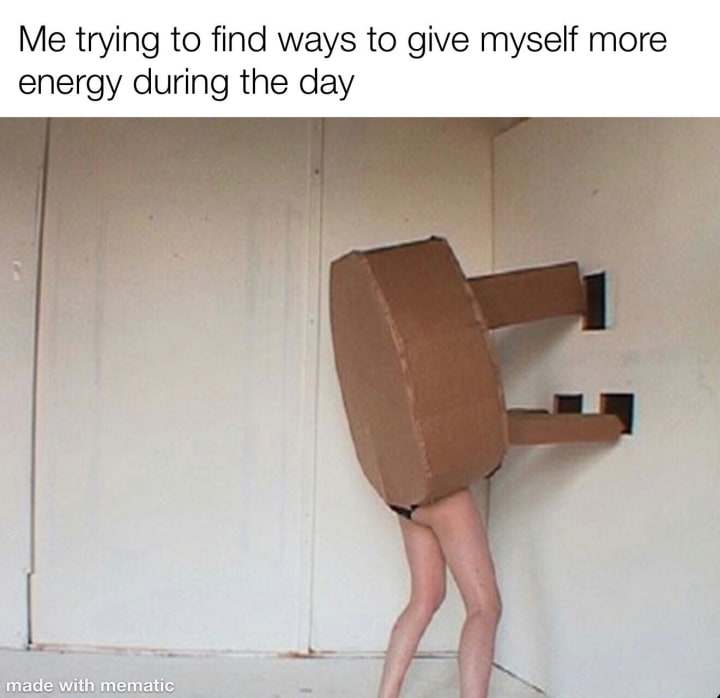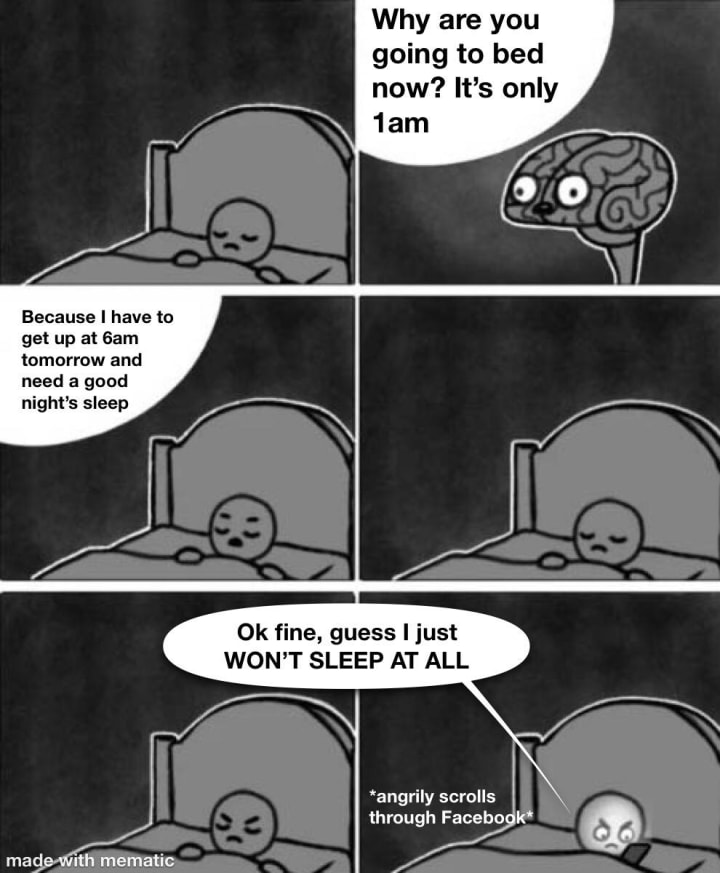This Year I'm Fixing My Circadian Rhythm
Sometimes getting 8 hours doesn't cut it. It's not just how much you sleep that matters - when you sleep can make a huge difference too.

It's that time of year again when we all start writing lists of things we need to change about ourselves while lounging around on the sofa regretting those extra three serves of Christmas lunch we spontaneously consumed days before. That's right, I'm talking about New Year's Resolutions *shudder*. Last year I wrote down a few resolutions for myself on Vocal. Did I achieve them? Yes, well, kind of...
But that's not the point. Those were this year's resolutions, but what about 2022, which rather ominously reads as "2020 too" (hereby referred to as 'the-year-of-which-we-do-not-speak')? Hopefully it won't be another repeat of THAT year, but only time will tell. So in order to give myself the best shot of not repeating the year-of-which-we-do-not-speak, I've decided to make a rather creative resolution based on something I learned quite a lot about this year - circadian rhythm.
I must confess, until I started learning about circadian rhythm at university this year, I thought it was a pseudoscience, like astrology or alchemy. As it turns out, circadian rhythm is very real, and underpins so many things in our day to day lives. Previously, I had just swept the entire concept under the rug whenever it came up, and had never paid it much thought until recently. As someone with an incredibly inconsistent sleeping schedule, and low energy levels during the day, this was a huge mistake and I only wish I'd learnt about it sooner. So take a seat, because the following information will apply to just about everyone. Hopefully it won't put you to sleep, not just yet at least.
What is circadian rhythm anyway?
You probably have a rough understanding of what it is, and the name is kind of self explanatory (sort of), but to keep things super clear, the majority of scientific papers will define circadian rhythm as:
A time-keeping mechanism that utilises systemic and cellular synchronization, allowing adaptation to the 24-hour day, and control of things like mood, hunger and sleep in response to cues such as light exposure.
To keep this reader friendly, I won't delve into the cellular biology, but generally speaking, each cell in your body has its own 'clock' that is synchronised with the rest of your body, and all of these are controlled by a central clock in a tiny part of your brain called the suprachiasmatic nucleus. This helps to regulate things like wakefulness, mood and hunger cues throughout the day in response to light.
Ok great...we're all just giant, meaty clocks. So why does any of this matter?
Well, as I already mentioned, circadian rhythm is largely responsible for things like wakefulness, mood and hunger cues. So if your resolution has anything to do with having more energy, improving productivity, eating healthier/more/less, or sleeping better, then fixing your circadian rhythm might be the answer.

Thanks to the pandemic which hit much of the world in the-year-of-which-we-do-not-speak, many people have suffered from disrupted and inconsistent routines. No day is like another and we've had to constantly adjust what/where we eat, when/how much we sleep, as well as what we do and where we go. For example, the work from home routine has become the norm for a huge chunk of the population. Thanks to this, many of us can now sleep in for an extra hour or two on those special work from home days.
The problem with all this is that it disrupts circadian rhythm. Your body naturally synchronises with the day/night cycle which is largely controlled by the level of light. When it gets dark, you normally start to secrete more of the hormones which promote sleep. But if you throw off your rhythm with things like I mentioned above, these hormones can be released at inconvenient times and you end up drowsy when you really shouldn't be. This of course is a very simplified example, and there are a lot of factors and biological mechanisms at play, but the general concept remains the same - you need to sleep and wake at consistent times.
So how am I going to fix my circadian rhythm to achieve my New Year's resolution?
Well, the answer is quite simple really - consistency! I already alluded to it earlier, but as a full time university student who works casual hours, I don't exactly have a consistent sleep schedule. Every day is different. Some days I get up at 6am and other days it's 11am. Some days I'm in bed by 11pm and some days it's 4am. It entirely depends on what shift I work and what kind of assignment deadlines I have to meet. The one thing I've noticed that is consistent though is that I'm always tired, and thanks to what I've learned about circadian rhythm, I now know why.

This year I finally left my hospitality job at a wedding venue, which was largely responsible for those dreaded 4am bedtimes. So now, as long as I'm actually organised and productive during the day, I don't really have an excuse to be going to bed that late anymore.
But going to bed at the same time each night is only one half of the solution. I also need to be waking up at the same time each day and THAT is going to be the real challenge. The weekends are perhaps going to be the hardest part to adapt to because who doesn't love a good Sunday morning sleep in?
So what are my specific resolutions?
Go to bed between 10:30-11:30pm each night Wake up between 6:30-7:30am each day No phone or electronic screens for the hour before bedtime
The third point was a little bonus I added at the end but is absolutely important for healthy sleep. Why? Because, as I mentioned earlier, light triggers the wakefulness part of the circadian cycle, especially blue light from electronic screens, and so by looking directly into light emitted by screens immediately before bed, you're activating the 'wake up' signals in your brain and training yourself to be more alert at these times. Hence, it can be harder to fall asleep afterwards. So those late night social media scrolls have to go.
So that concludes my new year's resolutions for 2022. If all goes to plan, they'll help transform me from this:

To something a bit more like this:
Thanks for reading. Wishing you a happy new year, and the perseverance to deal with all and any of your estranged family members over the holidays,
Josh.
If you enjoyed this article, don't forget to like and subscribe for more content!
About the Creator
J. R. Lowe
By day, I'm a PhD student, by night.... I'm still a PhD student, but sometimes I procrastinate by writing on Vocal. Based in Australia.






Comments
There are no comments for this story
Be the first to respond and start the conversation.